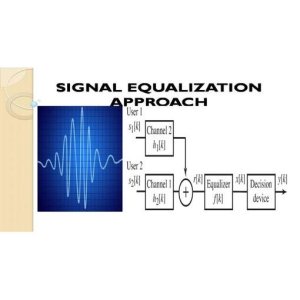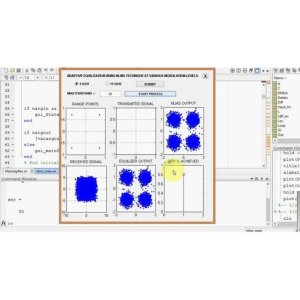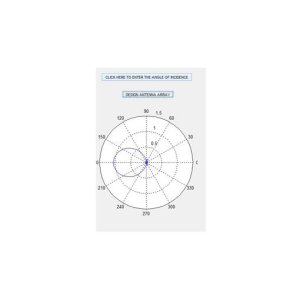Enhanced Modulation Techniques for WDM-based Radio over Fiber Communications
Problem Definition
Wavelength Division Multiplexing (WDM) systems play a crucial role in modern power communication networks by enabling multiple signals to be transmitted simultaneously over a single optical fiber. However, challenges persist in optimizing the performance and efficiency of these systems. One key limitation is the need to reduce the quality factor and bit rate in order to achieve better overall system performance. This necessitates a thorough examination of different modulation techniques that can be effectively incorporated into WDM systems to enhance their capabilities and achieve optimal outcomes. By addressing these challenges, researchers can unlock the full potential of WDM systems and pave the way for more reliable and efficient power communication networks.
Objective
The objective of this research is to address the challenges in Wavelength Division Multiplexing (WDM) systems by investigating the impact of different modulation techniques such as Manchester, DPSK, and DQPSK on power communication efficiency. By utilizing OptiSystem 7.0 as the analytical tool, the study aims to identify the optimal approach for improving system performance by evaluating parameters like quality factor, bit rate, eye height, and threshold value. Through the implementation of various modulation schemes and conducting iterations with different input power levels and distances, the research seeks to provide insights into the most suitable method for optimizing radio over power communication and contribute to enhancing the efficiency and reliability of power communication networks.
Proposed Work
The proposed work aims to address the research gap in Wavelength Division Multiplexing (WDM) systems by focusing on enhancing power communication efficiency. By exploring the impacts of different modulation techniques such as Manchester, DPSK, and DQPSK on WDM systems, the research seeks to identify the optimal approach to improve system performance. The use of OptiSystem 7.0 as the analytical tool will enable the evaluation of various parameters like quality factor, bit rate, eye height, and threshold value to assess the effectiveness of each modulation scheme in enhancing the overall system performance.
Through the proposed analytical model and the implementation of different modulation techniques in WDM systems, the research aims to provide insights into the most suitable method for optimizing radio over power communication.
By conducting multiple iterations with varying input power levels and distances, the project will evaluate the performance of each modulation scheme under different scenarios to determine the most effective approach. The findings from this study will not only contribute to the existing literature on WDM systems but also offer practical implications for improving the efficiency and performance of power communication systems.
Application Area for Industry
This project can be utilized in various industrial sectors such as telecommunications, data centers, and power distribution systems. In the telecommunications industry, the implementation of advanced modulation techniques in WDM systems can significantly enhance the performance and efficiency of high-speed data transmission. Similarly, in data centers, where large amounts of data are processed and transmitted, optimizing WDM systems can lead to faster and more reliable communication networks. Additionally, in power distribution systems, the use of WDM-based radio communication can improve monitoring and control capabilities, ensuring efficient power transmission and distribution.
The proposed solutions in this project address specific challenges faced by industries, such as improving the quality factor and bit rate in WDM systems.
By exploring various modulation techniques and analyzing their impacts on system performance, industries can achieve optimal outcomes in terms of data transmission speed, reliability, and efficiency. Implementing these solutions can result in enhanced communication networks, reduced latency, and improved overall productivity in various industrial domains.
Application Area for Academics
The proposed project on enhancing Wavelength Division Multiplexing (WDM) systems in power communication has significant potential to enrich academic research, education, and training in the field of communication systems and signal processing. By exploring the impacts of various modulation techniques such as Manchester, DPSK, and DQPSK on WDM systems, researchers, MTech students, and PHD scholars can gain valuable insights into optimizing the performance and efficiency of communication systems.
The utilization of OptiSystem 7.0 software for implementing the analytical model provides a hands-on learning experience for students and researchers, enabling them to understand the practical application of theoretical concepts in communication networks. Through the analysis of different modulation schemes under varying power and distance scenarios, the project offers a platform for innovative research methods, simulations, and data analysis within educational settings.
This project's relevance lies in its potential to contribute to advancements in communication technology, particularly in the optimization of WDM systems. Researchers and students can leverage the code and literature from this project to explore new avenues of research in communication systems, signal processing, and optical networks. By studying the effectiveness of modulation techniques in improving the quality factor, bit rate, eye height, and threshold value of WDM systems, scholars can expand their knowledge and skills in designing efficient communication systems.
Moving forward, the project opens up opportunities for further research in exploring novel modulation techniques, incorporating advanced signal processing algorithms, and optimizing WDM systems for various applications. Future scope includes investigating the integration of machine learning algorithms for adaptive modulation in WDM systems, exploring the impact of different channel impairments on system performance, and developing sustainable solutions for power-efficient communication networks.
Algorithms Used
The project utilizes Manchester coding, DPSK (Differential Phase Shift Keying), and DQPSK (Differential Quadrature Phase Shift Keying) modulation techniques to improve WDM-based radio over power communication in an optical system. Manchester coding aids in synchronization by transitioning at the midpoint of each bit. DPSK and DQPSK techniques encode data by changing the phase of the signal, providing efficient performance in noisy conditions. These algorithms are implemented in OptiSystem 7.0 to analyze their effectiveness in enhancing system performance.
The research evaluates the optimal modulation method by considering varying power and distance scenarios, with four iterations of input power to assess the model's effectiveness. Key performance indicators such as the maximum quality factor, beta rate, eye height, and threshold value are used to measure the results and determine the most suitable modulation scheme for the WDM system.
Keywords
SEO-optimized keywords: Modulation techniques, WDM systems, Power Communication, OptiSystem 7.0, Manchester, DPSK, DQPSK, quality factor, bit rate, threshold value, eye height, input power, phase shift keying, performance parameters, system optimization, radio over power communication, analytical model, OptiSystem 7.0 simulation, power and distance scenarios, optimal modulation method, maximum quality factor, beta rate, system efficiency, model analysis, Wavelength Division Multiplexing, communication performance, modulation schemes, research study.
SEO Tags
Problem Definition, Wavelength Division Multiplexing, WDM systems, Power Communication, Modulation techniques, Manchester, DPSK, DQPSK, Performance Optimization, OptiSystem 7.0, Quality Factor, Bit Rate, Radio over Power Communication, System Efficiency, Optimal Modulation, Analytical Model, Phase Shift Keying, Input Power, Distance Variation, Eye Height, System Effectiveness, Threshold Value, Research Study, PHD Research, MTech Thesis, Research Scholar, Communication Systems, System Analysis, Power and Distance, Performance Parameters, System Optimization.
| Shipping Cost |
|
No reviews found!


















































No comments found for this product. Be the first to comment!